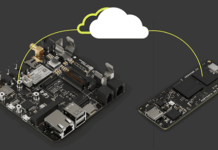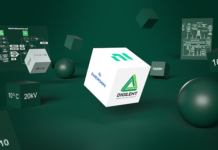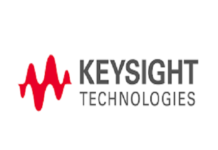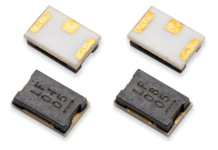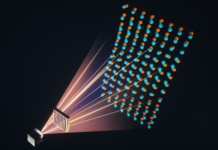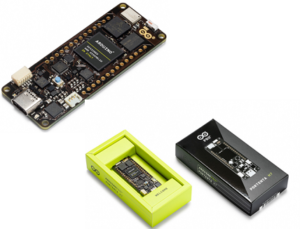
element14 has added the Portenta H7, the latest offering from Arduino to its extensive range of single board computers. The device targets growing demand from enterprise, small medium business (SMB) and professional makers for low-code modular hardware systems to support IoT development. The Arduino Portenta family provides low-power boards designed specifically for industrial applications, artificial intelligence (AI) edge processing and robotics, whilst introducing a new standard for open high-density interconnect to support advanced peripherals.
The first member of the family, the Arduino Portenta H7 module, includes everything needed to get started with IoT hardware development including crypto-authentication chip and communications modules for Wi-Fi, Bluetooth Low Energy and LTE, as well as Narrowband IoT. Its low-code application development platform with modular hardware, allows companies or makers to build, measure and iterate without lengthy integration projects and users also benefit from the value and usability of the new Arduino IoT application development platform (Arduino IoT cloud, Pro IDE with cloud integration, IoT UI editor) to help simplify the creation and deployment of custom connected products to the market.
Its combination of performance and flexibility makes the board suitable for applications where performance is key, such as High-end industrial machinery, Laboratory equipment, Computer vision, PLCs, Industry-ready user interfaces, Robotics, Mission-critical devices, Dedicated stationary computer and High-speed booting computation.
Portenta H7 features a dual-core ARM Cortex-M7 and Cortex-M4 running at 480 MHz and 240 MHz, respectively, capable of running high level code such as protocol stacks, machine learning or even interpreted languages such as MicroPython or JavaScript along with low-level real time tasks. It follows the Arduino MKR form factor, meaning that any existing MKR industrial shield can be used; can run Arduino code, Python and Javascript, and operates at an industrial temperature-range (-40 to 85°C).
Features include:
- Processor: STM32H747XI dual Cortex®-M7+M4 32bit low power Arm® MCU.
· Connectivity:
· The onboard wireless module enables simultaneous WiFi and Bluetooth® connectivity. The WiFi interface can be operated as an Access Point, a Station or as a dual mode simultaneous AP/STA and can handle up to 65 Mbps transfer rate. Bluetooth® interface supports Bluetooth Classic and BLE.
- 10/100 Ethernet phy.
- High Speed USB phy.
- Memory: includes options up to 64 MByte of SDRAM, and 128 MByte of QSPI Flash.
· Video: Display port over USB-C port.
· Encryption: NXP SE050C2 Crypto.
· GPIO: The Portenta family creates a new standard for pinouts adding two 80 pin high density connectors at the bottom of the board to ensure scalability for a wide range of applications.
· SD card support: Interface for SD Card connector (through expansion port only).
· Operating temperature: –40 °C to +85 °C (excl. Wireless module) / -10 °C to +55 °C (incl. Wireless module).
Cliff Ortmeyer, Global Head of Technical Marketing for Farnell and element14 said: “element14 stocks a broad range of modular solutions that enable customers to reduce time to market and maximise the potential of their IoT developments. The Arduino Portenta H7 combines outstanding performance and flexibility and can be used like any other embedded microcontroller board, or as the main processor of an embedded system. It’s also capable of running processes created with TensorFlow™ Lite, so you could have one of the cores computing a computer vision algorithm, whilst the other delivers low level operations such as controlling a motor, or acting as a user interface. This is a great addition to our range and gives small and medium businesses and professional makers the tools to develop IoT solutions without having to invest in specialized engineering resources.”
element14 carries a wide range of Arduino products in the MKR and Nano family which, along with the Portenta H7, are available to order from Farnell in EMEA, Newark in North America and element14 in APAC.



